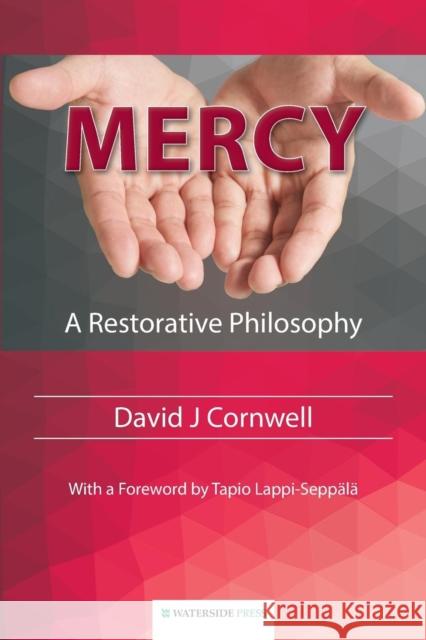Mercy: A Restorative Philosophy » książka
Mercy: A Restorative Philosophy
ISBN-13: 9781909976016 / Angielski / Miękka / 2014 / 140 str.
Restorative justice has attracted increasing support world-wide, but it sits uncomfortably alongside entrenched attitudes towards punishment and retribution. Because it does not involve 'locking-up people and throwing away the key' it is not favoured reading for risk-averse politicians or the media. There are also vested interests at play which can be traced back to when the state first sought to enhance its coffers and cast victims to the sidelines. As a result, the concept of 'mercy' has become largely lost, distorting relationships between victims, offenders and communities. 'This is a book for everyone concerned about the unfortunate state of our existing penal practices': Tapio Lappi-Seppala. The author argues that rediscovering mercy would lead to a more humane and purposeful form of criminal justice. His book looks at the characteristics of mercy and explains how it has become confused with mitigation and leniency. He goes on to deconstruct and analyze current theories and make proposals for reform. Long-overdue reform of contemporary criminal justice necessitates, as the author writes, a 'paradigm-shift' requiring inspired leadership and a consensus to 'do justice better' between policy-makers, academics, jurists, professionals and opinion-formers. The book examines the implications and challenges of such a journey and its value in helping to shape a modern, progressive, enlightened and civilised society. Identifies a lost ingredient of criminal justice: shows where criminal justice 'went wrong' and why it needs to recover and change direction; contains important new proposals. Based on a lifetime's experience of prisons and dealing with prisoners of all kinds in the UK and abroad. David J Cornwell has extensive experience of prisons and is an expert on restorative justice. His books include Criminal Punishment and Restorative Justice (2006) and the more recently acclaimed Civilising Criminal Justice (2013) (as editor: with John Blad and Martin Wright). Tapio Lappi-Seppala is Director General of the National Research Institute of Legal Policy and former senior legislative adviser on criminal law in Finland's Ministry of Justice.
Restorative justice has attracted increasing support world-wide, but it sits uncomfortably alongside entrenched attitudes towards punishment and retribution. Because it does not involve locking-up people and throwing away the key it is not favoured reading for risk-averse politicians or the media. There are also vested interests at play which can be traced back to when the state first sought to enhance its coffers and cast victims to the sidelines. As a result, the concept of mercy has become largely lost, distorting relationships between victims, offenders and communities. This is a book for everyone concerned about the unfortunate state of our existing penal practices: Tapio Lappi-Seppälä. The author argues that rediscovering mercy would lead to a more humane and purposeful form of criminal justice. His book looks at the characteristics of mercy and explains how it has become confused with mitigation and leniency. He goes on to deconstruct and analyze current theories?and make proposals for reform. Long-overdue reform of contemporary criminal justice necessitates, as the author writes, a paradigm-shift requiring inspired leadership and a consensus to do justice better between policy-makers, academics, jurists, professionals and opinion-formers. The book examines the implications and challenges of such a journey and its value in helping to shape a modern, progressive, enlightened and civilised society.Identifies a lost ingredient of criminal justice: shows where criminal justice went wrong and why it needs to recover and change direction; contains important new proposals. Based on a lifetimes experience of prisons and dealing with prisoners of all kinds in the UK and abroad.David J Cornwell has extensive experience of prisons and is an expert on restorative justice. His books include Criminal Punishment and Restorative Justice (2006) and the more recently acclaimed Civilising Criminal Justice (2013) (as editor: with John Blad and Martin Wright). Tapio Lappi-Seppälä is Director General of the National Research Institute of Legal Policy and former senior legislative adviser on criminal law in Finlands Ministry of Justice.











